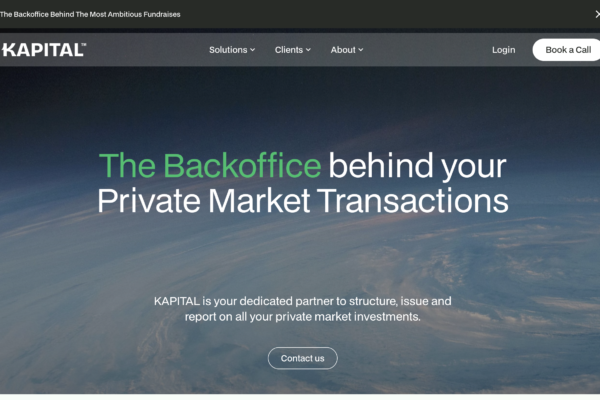WaltonChain Scam Review — A Flagged Crypto Project
Cryptocurrency projects with ambitious goals can be exciting, but they also demand careful scrutiny. WaltonChain (ticker: WTC) marketed itself as an innovative blockchain solution tying Internet of Things (IoT) hardware—particularly RFID chips—with supply chain and manufacturing ecosystems. On paper, that’s promising. Yet multiple aspects of WaltonChain have drawn concerns from the crypto community. In this review we break down the claims, the issues, the warning signs and the reasons many consider WaltonChain to be a high-risk or potentially problematic project.
What WaltonChain Claims to Be
WaltonChain pitched itself as more than just a token: it claimed to build a layered architecture combining hardware (RFID chips), logistics tracking and a blockchain infrastructure. The idea was that physical assets (via RFID) would be recorded immutably on blockchain subchains, allowing retailers, manufacturers and logistic operators to trace items from origin to shelf. According to its whitepaper, the system would consist of object layer, base layer, core layer, extension layer, service layer and application layer. The token WTC was framed as an integral part of the ecosystem, giving access to sub-chains, staking, node operation and IoT asset registration.
In theory, this is a real use case: supply chain + blockchain is a valid sector. The team behind WaltonChain claimed government or enterprise tie-ups, RFID hardware development, and a roadmap of “phases” from RFID chips to retail to manufacturing full rollout.
Why the Project Raises Major Red Flags
Despite its ambitious presentation, WaltonChain has accumulated a number of significant concerns:
1. Controversial Giveaway & Transparency Error
In a Valentine’s Day promotional campaign, WaltonChain announced a token giveaway to a broad audience of followers. However, the official Twitter account inadvertently posted a “winner” post from an employee account—implying the giveaway was rigged or the selection improperly managed. This error triggered sharp criticism and a steep token price drop within minutes. The fact that a giveaway meant to build trust was handled in such a careless way created doubts about the project’s integrity.
2. Lack of Clear Ownership and Communication Issues
Various community reports indicate issues such as slowed communication, unanswered questions and censorship. On Reddit, users reported that posts asking about token swaps or node holder issues were deleted or ignored. When a project claims enterprise hardware plus international partnerships, yet cannot fully clarify the hardware deployment or team structure publicly, that creates risk. WaltonChain’s infrastructure claims (RFID chips, hardware factories, IoT integration) exist largely in broad terms; some details appear vague or unverified.
3. Token Utility vs. Speculation
WaltonChain’s value proposition tied the WTC token to sub-chain operation, node rewards and IoT device registration. However, in market practice the majority of investor interest appears to have been speculative: buying WTC tokens in hopes of appreciation rather than actual enterprise hardware deployment or usage. When usage does not develop as promised, token value often stagnates or falls. Many holders report holding large amounts of WTC without seeing the promised node or sub-chain benefits materialize.
4. Tokenomics & Liquidity Concerns
Some community feedback points out that token supply, distribution or liquidity are unclear. For tokens that rely on hardware operational rollout (RFID manufacturing, device deployment) the timeline is long and capital-intensive. Projects that promise fast gains from token appreciation, rather than sustainable hardware usage, increase the risk of being over-hyped and under-delivered. WaltonChain also underwent a main-net swap of its ERC-20 tokens, but the transition appears to have been slow and some users report unclear instructions or delays.
5. Community Trust Issues
Because of the giveaway incident and subsequent price drop, community trust took a significant hit. Many longtime holders report frustration: slow news from the team, missing technical updates, delayed hardware rollouts. On forums, the sentiment often shifts from hope of institutional supply chain deployment to regret for early speculative decisions. Some users label WaltonChain as a “throwback altcoin” whose primary activity was market hype rather than real usage.
How the Concern Manifests for Token Holders
-
Price Pressure: After the giveaway controversy, WTC’s price took a sharp hit. For holders expecting steady appreciation based on enterprise rollout, this was a major blow.
-
Unclear Use Cases: Investors expecting node dividends, sub-chain returns or subscriber hardware usage often found those promises delayed or vague.
-
Liquidity Risk: If the token gains were based more on hype than real business operations, exit becomes riskier—especially if hardware rollout stalls.
-
Transparency Gap: When team communication, hardware verification, audit reports or device deployment documents are limited or tardy, trust suffers.
-
Speculation Versus Reality: Projects that rely on token appreciation rather than business revenue tend to face greater risk once investor enthusiasm drops.
Alarm Signals Specific to WaltonChain
-
Giveaway rigging/mishandling: The staff member winning the campaign raised doubts about fairness and governance.
-
Censorship / lack of open discussion: Users report moderation of threads asking legitimate questions; healthy projects typically encourage open discourse.
-
Hardware claims vs deployment evidence: RFID chip production and device integration are expensive and time-consuming; the gap between promise and public deployment appears large.
-
Token reward structure perceived as slow: Node operators, sub-chains and staking rewards require time; if community expectation is quick returns, dissatisfaction builds.
-
Marketing emphasised token price gains: Some alterations of focus from hardware integration to token trading attract speculators rather than long-term ecosystem builders.
Is WaltonChain a Guaranteed Scam? Not necessarily — but High Risk
It’s important to emphasise that while many indicators suggest WaltonChain is problematic, calling it definitively a “scam” depends on one’s definition. The project did release a whitepaper, audited code, and hardware architecture documents; there are listings and token holders. On the other hand, the gap between promise and reality for many holders is meaningful. Because of that discrepancy, many investors view WaltonChain as a high-risk speculative token rather than a stable or trusted enterprise project.
If you were expecting hardware deployment, token dividends, or enterprise IoT rollout within a short timeframe, WaltonChain did not deliver according to many users’ expectations. The project legacy largely rests on speculation rather than fully transparent execution of hardware supply chain promises.
Lessons from WaltonChain for Crypto Investors
Across the cryptocurrency space, projects like WaltonChain teach several important lessons:
-
Check governance and transparency: Who is running the project? Are giveaway winners selected fairly? Is governance clearly documented?
-
Assess usage vs token hype: Does the token have real utility (hardware deployment, revenue generation) or is value based solely on future investor demand?
-
Monitor communication and deliverables: If there are delays, missteps, or silence from the team, that can signal underlying issues.
-
Be cautious with giveaway hype: If the project promotes huge giveaways, ensure they are run fairly — mishandled giveaways can reflect deeper problems.
-
Understand the tokenomics: How many tokens exist? How many are in team control? What is the vesting or lockup schedule? Poor tokenomics raise risk.
-
Expect risk and volatility: Especially with projects still attempting hardware or enterprise rollout—returns often depend on many moving parts.
Final Verdict
WaltonChain (WTC) was once highly ambitious in its goal to integrate RFID, IoT and blockchain for supply chain and manufacturing. However, the combination of giveaway irregularities, transparency concerns, community trust erosion and token usage not aligning with promises means that for many investors the project did not live up to expectations.
If you currently hold WTC or consider investing, assume that you are entering a high-risk environment where execution history and token utility are inconsistent with the marketing narrative. The project exhibits multiple alarm signals that warrant caution.
In summary: WaltonChain remains a token with notable goals, but its track record, promotional missteps and community issues place it far from being a “safe” investment. It is an example of how in crypto, ambition alone is not enough—execution, transparency and trust matter just as much as the idea.
-
Report WaltonChain and Recover Your Funds
If you have fallen victim to WaltonChain and lost money, it is crucial to take immediate action. We recommend Report the scam to BOREOAKLTD.COM , a reputable platform dedicated to assisting victims in recovering their stolen funds. The sooner you act, the greater your chances of reclaiming your money and holding these fraudsters accountable.
Scam brokers like WaltonChain persistently target unsuspecting investors. To safeguard yourself and others from financial fraud, stay informed, avoid unregulated platforms, and report scams to protect. Your vigilance can make a difference in the fight against financial deception.





